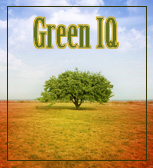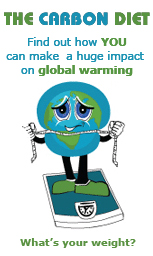Ask Ronit
 I Like Your Ponytail, A Story About Commitment
I Like Your Ponytail, A Story About Commitment
“I like your ponytail.” I said in a playful manner. “Ponytail?” he repeated in a thick French accent. There and then began the most extraordinary odyssey of my life.…
Avoid 90% of the Pesticides in Food, by Avoiding 12 Foods
Why should you care about pesticides in your food?For starters there may be as many as twenty pesticides on a single piece of fruit you eat.…
Dear Mrs. Black,It was January 1967 when this 11 year-old, frightened, little Israeli girl walked into your classroom for the first time. I had only arrived in the country two weeks before.…
With sex all around us, oozing out of our televisions, theaters, magazines, fashion, on the streets, one would think we are the most sexually informed, open and comfortable nation on the planet.”…
I’m sure by now you all have noticed the ongoing meltdown in the mortgage industry. The cause of this whole mess is a little bit complicated, rooted in both the structure of the mortgage industry, and human nature. I’ll try to explain both factors here in layman’s terms.…
Breaking old habits; Creating new Ones
We are mostly habitual beings. Webster defines habit as an acquired mode of behavior that has become nearly or completely involuntary.…
Navigation
News And Events
My Message of Cross-Cultural Understanding
Through personal experiences and story telling, Queen Rania of Jordan, speaking at the Women’s conference 2007, delivers her message of cross cultural understanding. “Because I am convinced that we are all much more alike than we are different... that the experiences that shape us, no matter where we grow up, bring out the same very human responses -- of tears and laughter, fear and courage, uncertainty and enlightenment. My hope is that you will see part of yourself in me, just as I have seen myself reflected in other women's lives around the world.” read more »
Senate Bill Adds Momentum for Action on Global Warming, Vital Strengthening Needed
For too many years, Washington has idled while the planet has warmed. Early action is vital, and so is the need to get it right. While a new Bill proposed by Senators Joe Lieberman and John Warner is encouraging, it falls short. It continues to give global polluters too much for too long. This bill proposes a 51-63% reduction in emissions by 2050 is proposed, but is not sufficient nor reflects the urgency of the crisis. Current science tells us that we must reduce our total greenhouse gas emissions 80% by 2050 if we are to avoid catastrophic impacts due to global warming. read more »
Bush Hosts Dalai Lama Amid Chinese Outrage
Despite China's warning that U.S. plans to honor the exiled Tibetan spiritual leader could damage relations between Beijing and Washington, President George W. Bush hosted the Dalai Lama on Tuesday. H.H. The Dalai Lama was in Washington to receive the Congressional Gold Medal in recognition of his advocacy of peace, tolerance, human rights, non-violence, and compassion throughout the world. In order to play down the symbolism of the talks, Bush met the Dalai Lama in the White House residence instead of the Oval Office where he normally welcomes visiting world leaders. read more »
Center for Future Health Awarded Funding for Proactive Self-Care Technology
A new proactive self-care technology will help prevent and detect avoidable health complications. The idea is to develop an integrated health care system based on consumer-health technology These advancements will allow users to prevent crisis and better manage daily routines, and will enable people to better make their own health management decisions..This represents a new view of health care, moving away from that of crisis-management.
Greenhouse gas emissions hit danger mark: scientist
Global economic expansion, particularly in China and India, has accelerated greenhouse gas emissions to a dangerous threshold not expected for a decade and could potentially cause irreversible climate change, said one of Australia's leading scientists, Tim Flannery. He explains that at this point, reducing greenhouse emissions may no longer be enough to prevent dangerous climate change. read more »
World's Water Supply at Risk
Maude Barlow, one of the world's leading expert on water struggles, explains the leading causes threatening global water supply. Her primary concerns include private corporations polluting our waters, and government's relinquishing control over water supplies to same corporations. She emphasizes the need to develop better water laws to minimize corporate pollution and to insure the supply remains ids of governments rather than privatization.
Doctors Are The Third Leading Cause of Death in the US, Causing 225,000 Deaths Every Year
An article in the Journal of the American Medical Association (JAMA) reports that medical errors have become the 3rd leading cause of death in the US. Not only is this tragic, but is particularly ironic given the high costs of health care in the US. Furthermore, poor performance of health care in the US was recently confirmed by a World Health Organization study, which used different data and ranked the United States as 15th among 25 industrialized countries.
Do we have to get to give
By reli4nt
Beginning November 12 the One Laptop Per Child program will introduce its Give One Get One program where consumers can purchase one of the devices of $399 and a second will be sent to a child in a developing country. read more »
Cheat Nuetral
By reli4nt
For anyone who has felt and ambivalence about the idea of carbon offsetting or for anyone looking for a good analogy to describe their misgivings towrds it, here's a bit of fun I found by way of the Inspired Protagonist this weekend.
Cancer: Killing Animals Is Killing Us
By goveg.com
Studies conclude that vegetarians are about 40% less likely to develop cancer than non-vegetarians. These studies surprisingly conclude that animal protein is more important in causing cancer than any other chemical carcinogen. Cutting down on meat intake and increasing vegetable and grains consumption will greatly diminish the risk for cancer.
Don't neglect these 5 vital organs
By Ted Spiker
One of man's dominant roles throughout history has been protector of the tribe. With the record amounts of illnesses today, there is a tribe we don't consider that much, our internal organs. We face subtle but powerful threats to our well-being and the best way to stay on top of our game is to protect our inner All-Star team, our organs. Learn how to disease-proof your body.
Pope Urges Young to Care for Planet
Speaking to a group of 500,000 youth on Sunday's open-air Mass, the Pope urged, "Before it's too late, we need to make courageous choices that will recreate a strong alliance between man and Earth....We need a decisive 'yes' to care for creation and a strong commitment to reverse those trends that risk making the situation of decay irreversible."
He spoke of the tension and conflict caused by water shortages in some parts around the world, and the environmental impact of recent forest fires in Italy and Greece. read more »
Radio Frequencies Help Burn Salt Water
An Erie cancer researcher, John Kanzius, has found a way to burn salt water, a novel invention that may lead to the prospect of using salt water, the most abundant resource on earth, as a fuel.
He happened upon the discovery accidentally when he tried to desalinate seawater with a radio-frequency generator he developed to treat cancer.
Rustum Roy, a Penn State University chemist, has held demonstrations at his State College lab to confirm his own observations. He explained that the radio frequencies act to weaken the bonds between the elements that make up salt water, releasing the hydrogen. Once ignited, the hydrogen will burn as long as it is exposed to the frequencies, he said. read more »
People Make it Hard to Build Green
By reli4nt
A simple alignment of goals among developers and a commitment to green building is all we would need to change the face of building construction during a time when construction is booming.
The World Business Council for Sustainable Development released a survey last week which found that real estate and construction costs of green buildings are overestimated by 300%. The 1400 respondents also understated greenhouse gas emissions from building as 19% of the world's total while the actual number is 40%. read more »
Junk food and obesity tied to pregant mother's diet
By reli4nt
Pregnant mothers-to-be and those breastfeeding who eat junk food may also be passing a craving for junk foods and a tendency towards obesity to their children. Researchers at the Royal Veterinary College in London published the findings in the British Journal of Nutrition showing the rats given access to junk foods when pregnant, and/or while breastfeeding had offspring that overate and favored junk foods such as donuts and potato chips. read more »
10 Million Trees in One Day
By reli4nt
The Forest Department of India's most populous state Uttar Pradesh, along with the help of farmers and students, planted 10.5 million trees in a single day.
"In fact, we have overshot the target," said state forestry chief V.N. Garg. "The sites can also be seen on Google Earth and the detailed reports (on plantation figures) are being sent to the office of the Guinness book of world records." read more »
Today's Greenest Technologies
By reli4nt
PCWorld.com released its list of the top ten greenest tech products today. The list included laptops, a solar powered charger for cell phones, cameras, IPods and other tech gadgets, and even a green web hosting company.
Nokia made the list with its N95 cell phone which handles WiFi, GPS, email, text-messaging, web browsing, plays video and music, has a 5 megapixel camera that also takes video. The company will even recycle the phone for free. Nokia recently topped Greenpeace's June 2007 Guide to Greener Electronics. read more »
What's In Those Water Bottles
They have finally come out and admitted that in those pristine sounding and looking Aquafina, Dasani and Pure Life water bottles is nothing more than purified tap water. Pepsico, Coca-Cola and Nestle are not the only culprits. The fact is that 25% of bottled water sold comes from public sources. In a country that has the safest tap water; it makes no sense to spend money on what one can get for free from the kitchen faucet. Further more, the costs to the environment for producing the bottles, the purifying process and the transportation, in addition to the billions of plastic bottles polluting our planet, should give one pause before their next purchase. read more »
Air pollution can lead to heart disease
By UCLA
A new UCLA study links diesel exhaust with clogged arteries. The finding, published in Genome Biology, describe how the particles from diesel fumes affect the fatty acids in Low Density Lipoprotiens (LDL or "bad" cholesterol) by combining with them and helping to trigger the genes that cause atherosclerosis, or a hardening of the arteries. This interaction significantly increases the chance for a heart attack. read more »
Now you can green up your credit
By reli4nt

GE released a new credit card that promises toinvest 1% of consumer purchases to emission reduction projects. Consumers can opt for half of 1% as cash back and the other half to fund offsets. Each year on Earth Day you will recieve a report showing how your off sets balance will reduce emissions. read more »

 My Hero
My Hero We Are Sexual Beings
We Are Sexual Beings The Banking Implosion
The Banking Implosion









